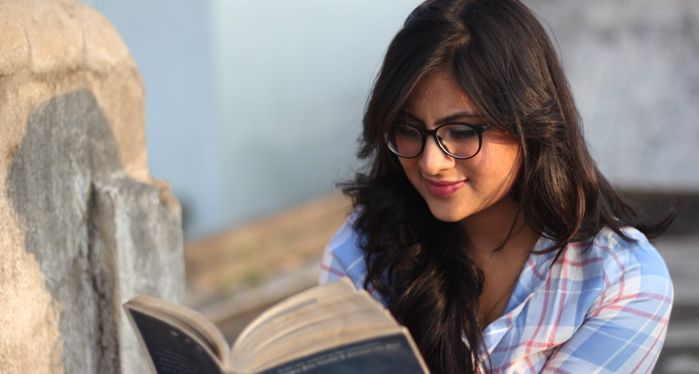
What Is “Worthwhile” Reading?
I’ve encountered it in discussions with my real-life job colleagues, with customers on TBR, and with strangers on the internet: many seem to have the impression that to learn while reading, you need to be reading “literary” or “prestigious” books, large nonfiction tomes, or biographies about important people in order to be reading “worthwhile” subject matter. I’m not a fan of unnecessary scare quotes, but you’ll see I used them a lot in the previous sentence. That’s because who gets to define what “worthwhile” means anyway?
At Book Riot, we’re no strangers to arguing for all kinds of books and readers, like why there shouldn’t be a stigma around reading romance, or that adults can in fact read YA, or even that if you’re not in the mood for reading or not a big reader in the first place, that’s A-okay. But for some reason, despite all this, people still seem to think they need to be reading books that “make them think” or “challenge them” — books that meet this standard are “worthwhile” books.
In conversations I’ve had, people seem to shrug off what they’re reading: “Oh, I’m not reading anything real. It’s just a fun book.” They say this while referring to something like Emily Henry’s Beach Read, which not only is a “fun” book, but it also flips the script on traditional gender roles and society’s perceptions of them, forcing the main characters to learn something outside their comfort zone. Why isn’t that considered worthwhile, informative, and important reading? I think it should be.
I think the most popular sentiment I hear is related to “I want to learn something, but I just can’t get into history books, it feels like school.” To this I have several responses.
First, you can learn something that isn’t necessarily history. You can read books about music, geography, nature — literally any topic will teach you something. I’m not sure when it was ingrained in all of us that the only way to learn was by reading big, giant history books, but toss that notion right out those squeaky old classroom windows that probably didn’t open (along with most of the history books from school anyway, because most of those are one-sided and quite inaccurate, anyway).
And guess what else? You don’t even have to be reading nonfiction to learn something. Reading historical fiction can teach you about what it was like living in Poland during the Second World War or what it might have been like as a single young woman trying to find a career path in the 1950s. Sure, there will always be embellishments and potentially exaggerated or added pieces that are not 100% historically accurate, but fiction is a great way to be introduced to new time periods and places you are interested in. Curious readers can do more research and reading on areas they want to learn more about.
I’ve learned countless things from fiction.
I learned what sourdough starter is and how to feed it from Robin Sloan’s Sourdough. I learned about police brutality and what my white privilege means thanks to Angie Thomas’s The Hate U Give. I learned about mental illness and cyanide poisoning (thank you, Flavia de Luce) and spontaneous combustion and famous last lines and the fact that there are translators who help me access different books from around the globe (the first translated work I ever read was Ruby Red by Kerstin Gier, translated by Anthea Bell).
So if next time you are talking about books you find yourself “justifying” your reading by deflecting or putting down the book you’re genuinely enjoying, thinking that people don’t think you’re learning by reading romance or sci-fi or the latest James Patterson novel, redirect those thoughts and gently remind yourself that any reading can be informative and important. We all need to reframe our thoughts around what “worthwhile” reading is.














